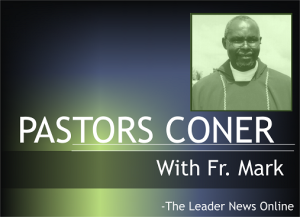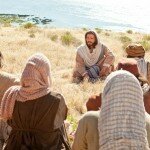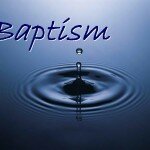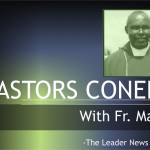LAZARUS, SYMBOL OF HUMANITY
 The liturgy of the Mass offers us the key of reading the gospel text: Jesus, true man like us, mourns His friend LAZARUS. He, God and Lord of life, calls him back from the sepulcher. Today, He extends to all men His mercy and with his sacraments makes us pass from death to life (Preface). This is also the mystery we are called to celebrate in our assembly. We are now close to Easter and the Church invites us to get to the heart of it through the understanding of the wonderful event narrated in the Gospel.
The liturgy of the Mass offers us the key of reading the gospel text: Jesus, true man like us, mourns His friend LAZARUS. He, God and Lord of life, calls him back from the sepulcher. Today, He extends to all men His mercy and with his sacraments makes us pass from death to life (Preface). This is also the mystery we are called to celebrate in our assembly. We are now close to Easter and the Church invites us to get to the heart of it through the understanding of the wonderful event narrated in the Gospel.
This miracle becomes a sign in our celebration. What Jesus worked in Lazarus, He incessantly accomplishes in us with His Paschal mystery which becomes our Passover, the salvific event always present and actual, in which His death overcomes our death and His resurrection introduces us into an existence already redeemed that is pure and holy, pledge and prelude of the glorious and immortal life of heaven.
LAZARUS, SYMBOL OF HUMANITY DEAD THROUGH SIN
Sin entered the world and with sin death, and so death reigned over all men (cf. Rom 5:12). Its weight burdens us and God experience it. Death besieges us.
We are hounded by physical death which every moment eats away the days of our time until the final annulment of our existence in this world.
We are hounded by spiritual death, that is, by the sinister power of sin, which takes our breadth away and precipitates the whole of man into a deep moral decadence throwing him into situation of dismay and damnation.
Death ensnares us from outside. We live in a hedonistic, permissive, neo-paganistic society in which the devastating force of sin assumes a thousand faces which manifest and explode in all the expressions of life and present in human relations at all levels: corruption, war, pornography, violence, organized evil life, psychosis of war, terrorism, intolerance, nuclear terror etc.
Death ensnares us from within. Sin penetrates us and deposits in the heart the germs of death: drowsy egoism and never completely extinguished hate, envy, jealousy, avarice in having and possessing, wish to emerge and dominate others, service of proper interests and one’s ambition (capital sins).
CHRIST IS THE RESURRECTION AND THE LIFE
We are decadent but not abandoned. The sisters of Lazarus send a message to Jesus: The one You love is sick. Man whom God loves is sick. God continues to love even after the sin and pursues him everywhere through the ways of the world. He did it by sending His Son. Christ had from God the mission of re-conquering man to the love of the Father and to lead him from death to life. All this is concealed in the narrative of today’s gospel. Jesus receiving news of His friend’s death returns to Judea. He loves Lazarus and shares the sorrows of the sisters, weeping and grieving with them. With a miracle He restores him to life.
In the light of faith, this astonishing event becomes a parable full of mysterious and consoling significances.
Jesus is moved and mourns man whom He loves, far from God, rebel, alienated, desperate, lost, dead.
He loves him and He goes in search of him: where did you lay him? And He immediately assures that he will rise again.
Christ approaches sinful man and cries as to Lazarus: Come forth! Forth from egoism, from indifference, from desperation!… Forth from fear, from contradiction, from anguish, from death!…
The power of the Christian Passover is such as to renew man from the roots and transform the entire universe. Christ, dead and risen, involves the world in an event of salvation that pulls it from its condition of decadence and death towards the glory of immortal resurrection.
FAITH AND CHRISTIAN DECISION
We can open ourselves to Christ and meet only through faith. This puts us before our responsibility: faith represents the dramatic decision on which depends our destiny. And this is also clear from an attentive reading of our gospel text. Before Christ appear successively the disciples, Martha and Mary, the Jews. All are constrained to take a position. The disciples, at first gripped by fear, must take the steps of faith with its attendant risk. They decide to accompany Jesus to Judea where He faced death threats. Thomas speaks for all: “Let us go and die with Him” (v.16).
The Jews, who gathered in the circumstance, are constrained by the exceptionality of the event to take a position: with Christ or against Christ. Some, John noted, believed in Him, but many probably blinded by the light of the astonishing prodigy, repudiate Him definitively and from that moment decided to eliminate Him. All of this maintain a surprising actuality: they are some who without Christ cannot live and those who without Him seem to live calmly.
We have not betrayed Christ; we say and want to be Christians. But are we conscious of the commitment which faith in Him brings? To be Christian means to make a radical choice which gives an orientation to all life to which it is necessary to remain faithful and consistent with a generous dedication capable of sacrifice. Faith is a free choice which implies a risk. It obliges us to abandon false human securities and allow ourselves to be carried by God, following Christ in the conviction that this is only way to find sense and fulfillment in our life. Only this way does it become a portent force which gives us the possibility of noticing the presence of Christ: a presence which saves, liberates, gives certainty, reconciles and renews. The Christians, renewed in Christ, becomes a renewed factor in the renewal of the world. The evils which today afflict humanity can be fought off with an effective Christian renewal. We have a responsibility towards this. But external renewal passes through renewal of the conscience; and this obliges us to an open and courageous witness.
God bless you!
Read also Related Posts
Comments
comments

 Sermon on the Mount
Sermon on the Mount
 JESUS CHRIST, PERFECT MODEL FOR EVERY STAGE OF HISTORY
JESUS CHRIST, PERFECT MODEL FOR EVERY STAGE OF HISTORY
 BAPTISM OF OUR LORD
BAPTISM OF OUR LORD
 AFTER THE CHRISTMAS FESTIVITIES
AFTER THE CHRISTMAS FESTIVITIES
